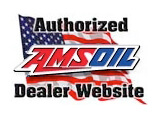08 Sep Solve ethanol issues before they arise
The fuel some love to hate isn’t the problem – letting gasoline sit too long is the real problem.
How did an alternative fuel made mostly from corn grown in the Midwest become a political lightning rod? Whatever the reason, ethanol is always a controversial topic. Some love it, citing its ability to reduce our dependence on foreign oil while supporting American jobs. Some hate it, saying it reduces fuel economy and wastes farmland that could be used to grow food.
I want to talk about the effect ethanol can have on fuel-system components, especially in powersports and lawn & garden equipment – and what you can do to avoid those problems.
What is ethanol?
Ethanol is an alcohol fuel derived from plant materials, such as corn, barley or wheat. It’s mixed with gasoline at different ratios to produce the fuel you buy at the pump. Most of us are familiar with E10, which is gasoline that contains up to 10 percent ethanol. Today, E15 is becoming more common. And owners of flex-fuel vehicles designed to run on increased concentrations of ethanol can opt for E85.
The upside of ethanol
Years ago, lead was added to gasoline to, among other things, boost octane rating and help prevent engine knock. It turned out lead poisoned catalytic converters and harmed the environment, so it was replaced by methyl tert-butyl ether (MTBE). However, MTBE was shown to damage the environment if leaked or spilled. Today, ethanol has replaced MTBE as a more environmentally friendly means of boosting octane.
Fuel-system problems
That brings us to a major knock on ethanol– it’s propensity to degrade rubber and plastic fuel hoses and carburetor components. Ethanol can cause gaskets and fuel lines to harden, crack and then leak. It can also cause aluminum and brass fuel-system components to corrode and develop a white, flaky residue that clogs fuel passages. Some marina personnel I’ve talked to say up to 65 percent of their repair orders are attributed to fuel-system problems.
Ethanol isn’t to blame
While ethanol has become a popular scapegoat for mechanics, especially in the marine industry, it isn’t the enemy – time is the enemy. Why do ethanol related problems affect powersports and lawn & garden equipment more than your car or truck? Because your boat or lawnmower can sit idle for weeks or even months. During that time, the fuel can absorb moisture since ethanol has an affinity for water. That’s why ethanol related problems are so common in marine applications. Water can break the molecular bond between gasoline and ethanol, causing the water/ethanol mixture to separate from the gasoline and fall to the bottom of the tank. This is known as phase separation, and you can see an example of it in the image above.
Phase separation causes a couple problems. The engine can draw the ethanol/ water mixture into the carburetor or injectors, leading to a lean-burn situation that can increase heat and damage the engine. In addition, the gasoline left behind no longer offers adequate resistance to engine knock since the ethanol that provides the increased octane the engine needs has separated from the gasoline. Burning low-octane gas can cause damage due to engine knock, especially in two-stroke engines. Finally, if your boat, lawnmower or other piece of equipment sits unused, the water/ethanol mixture can slowly corrode aluminum and brass fuel-system components, not to mention rubber and plastic fuel lines and gaskets.
Eventually those components fail and require replacement.
Driving your car or truck almost every day doesn’t allow enough time for phase separation to occur, which is why we don’t see these issues nearly as often in the passenger car/light-truck market.
Prevention is the best solution
Although some fuel additives on the market claim to reverse the effects of phase separation, there’s no way to reintegrate gasoline and ethanol once they’ve separated. Instead, it’s best to prevent it.
One solution is to use non-oxygenated, ethanol-free gas in your powersports and lawn & garden equipment. It costs a little more, but it eliminates problems associated with ethanol. Another solution is to treat every tank of fuel and container of gas with AMSOIL Quickshot ®. It helps keep water molecules dispersed in the fuel to prevent phase separation. It also cleans varnish, gums and insoluble debris while stabilizing fuel during short-term storage.
It’s a great way to avoid ethanol-related problems and keep your equipment protected. There’s nothing controversial about that.

